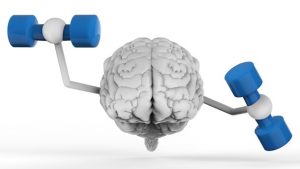Imagine a stronger, sharper mind that effortlessly remembers names, solves problems, and stays focused. It’s within your reach. By incorporating regular physical activity into your daily routine, you can enhance your brain health and cognitive function. The connection between exercise and mental acuity has been extensively researched and proven. In this article, we will explore the evidence behind the powerful link between physical activity and brain health by https://www.themindtreat.com, and how it can improve your memory, prevent cognitive decline, and unlock your full mental potential.

The Benefits of Exercise on Brain Health
Improve your brain health by incorporating exercise into your routine. The benefits of exercise on brain health are well-documented and supported by scientific evidence. Engaging in regular physical activity has been shown to enhance cognitive function and improve overall brain health. When you exercise, your brain receives increased blood flow, delivering oxygen and nutrients that are essential for optimal brain function. Additionally, exercise stimulates the production of growth factors in the brain, which promote the growth of new neurons and the formation of connections between them. This can enhance memory, attention, and problem-solving skills. Furthermore, exercise has been found to reduce the risk of developing neurodegenerative diseases such as Alzheimer’s and Parkinson’s. So, whether it’s going for a run, practicing yoga, or simply taking a brisk walk, make exercise a priority to boost your brain health.
How Physical Activity Improves Cognitive Function
To further enhance your cognitive function, delve into how physical activity directly impacts the brain. Engaging in regular exercise has been shown to have numerous positive effects on cognitive function. Firstly, it increases blood flow to the brain, delivering oxygen and nutrients necessary for optimal brain function. Exercise also stimulates the release of chemicals in the brain, such as endorphins, dopamine, and serotonin, which improve mood and promote overall brain health. Furthermore, physical activity promotes the growth of new neurons and strengthens existing neural connections, leading to enhanced cognitive abilities such as improved memory, attention, and problem-solving skills. Additionally, exercise has been found to reduce the risk of age-related cognitive decline and neurodegenerative diseases, such as Alzheimer’s and Parkinson’s. So, lace up your sneakers and get moving to give your brain a boost!
The Link Between Exercise and Memory Enhancement
To boost your memory, explore how exercise directly impacts the brain. Numerous studies have shown a clear link between physical activity and memory enhancement. When you exercise, your heart rate increases, pumping more oxygen and nutrients to your brain. This stimulates the release of chemicals that promote the growth of new brain cells and strengthen existing connections between neurons. Exercise also increases the production of a protein called brain-derived neurotrophic factor (BDNF), which plays a crucial role in memory formation and retention. In fact, research has found that higher levels of BDNF are associated with improved memory performance. Additionally, exercise has been shown to reduce the risk of age-related memory decline and even help combat conditions such as Alzheimer’s disease. So, lace up your sneakers and get moving to give your memory a powerful boost.
Preventing Cognitive Decline Through Regular Exercise
Are you curious about how regular exercise can help prevent cognitive decline? Research has shown that engaging in physical activity on a regular basis can have a significant impact on maintaining cognitive function and preventing cognitive decline as you age. Studies have found that exercise increases blood flow to the brain, which in turn promotes the growth of new neurons and enhances brain connectivity. Regular exercise has also been linked to a reduced risk of developing conditions such as Alzheimer’s disease and dementia. In fact, a study published in the Journal of Aging and Physical Activity found that individuals who engaged in moderate-intensity exercise for at least 150 minutes per week had a 38% lower risk of cognitive decline compared to those who were inactive. So, if you want to protect your brain health and prevent cognitive decline, incorporating regular exercise into your routine is a smart choice.
